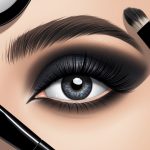How to Prevent Hair Loss Naturally: Tips, Remedies, and Products That Work
Hair loss can be a stressful experience, but there are effective, natural ways to slow down or minimize shedding without harsh chemicals or invasive procedures.
A combination of healthy habits, nutrient-rich diets, targeted natural remedies, and gentle hair care routines can help prevent hair loss and maintain scalp health.
Many people find that scalp massages, the use of essential oils such as rosemary and coconut oil, and consistent hydration offer tangible benefits for hair strength and growth.
Making dietary changes, such as increasing protein and incorporating a Mediterranean diet, can support follicle health from the inside out.
Certain ingredients and products—like aloe vera, multivitamins, and olive oil—may also help nourish the scalp and reduce breakage.
Staying aware of hair loss triggers, including stress and harsh styling practices, is crucial.
Understanding the Causes of Hair Loss
Hair loss, or alopecia, can be triggered by a variety of factors, each requiring different approaches for prevention and treatment.
Understanding why hair sheds or thins helps guide practical steps toward lasting scalp and hair health.
Genetics and Hereditary Factors
Genetic predisposition is a leading cause of hair loss, especially in men and women experiencing pattern baldness (androgenetic alopecia).
This condition typically manifests as a receding hairline or thinning at the crown.
The genes inherited from both parents determine hair follicle sensitivity to hormones like dihydrotestosterone (DHT), which leads to follicle miniaturization and reduced hair growth cycles.
Early onset is common if there is a family history of hair loss, and the condition often progresses predictably.
People affected by hereditary hair loss may first notice gradual thinning in their twenties or thirties.
Treatments for genetic hair loss, such as minoxidil, can slow the process and stimulate partial regrowth.
These options, however, work best when started early.
Hormonal Changes and Imbalances
Hormonal changes play a significant role in temporary or permanent alopecia.
Pregnancy, childbirth, menopause, and thyroid disorders can alter hormone levels and disrupt the hair growth cycle.
Increased androgen hormones, such as testosterone, can cause hair follicles to shrink, leading to thinner strands and increased shedding.
Thyroid imbalances (both hypo- and hyperthyroidism) affect metabolic processes impacting hair follicles.
Proper medical treatment for thyroid disease often leads to noticeable improvement in hair loss symptoms, but fluctuations during illness may prolong shedding.
Managing stress and underlying conditions helps stabilize hormone-driven hair loss, making it critical to identify and address imbalances promptly.
Skin Conditions and Scalp Health
A healthy scalp is essential for hair growth, but various skin conditions can compromise follicle function.
Seborrheic dermatitis, psoriasis, and fungal infections (like tinea capitis) inflame or damage the scalp, which may lead to scarring and permanent follicle loss if left untreated.
Chronic dandruff and itchiness can also result in persistent scratching, causing further trauma to the scalp and increased hair breakage.
Maintaining proper scalp hygiene, avoiding harsh chemicals, and using medicated shampoos or topical treatments are necessary to manage these conditions.
Treating underlying dermatological issues not only reduces inflammation but also supports the return of normal hair production cycles, as supported by guidelines from the American Academy of Dermatology.
Medical Conditions and Medications
Several medical conditions and medications can trigger hair loss.
Autoimmune disorders, such as alopecia areata, attack hair follicles, resulting in patchy hair loss that may be reversible with appropriate therapy.
Chronic illnesses like lupus or diabetes can disrupt normal follicle cycling through inflammation or reduced blood supply to the skin.
Medications for cancer (chemotherapy), depression, arthritis, and high blood pressure frequently list hair shedding as a side effect.
Nutritional deficiencies, especially low iron or protein intake, impair hair structure and regrowth.
Identifying and managing the underlying medical problem is essential for controlling hair loss.
In many cases, adjusting medication or improving diet leads to significant improvement, as seen in recommendations from Cleveland Clinic’s guide on causes and prevention options.
Optimal Nutrition for Healthy Hair Growth
Nutrition directly impacts hair growth, density, and overall hair health.
Eating a balanced diet rich in specific vitamins, minerals, and healthy fats helps address common nutritional deficiencies that can contribute to hair loss.
Essential Nutrients for Hair Health
Certain nutrients are crucial for healthy hair growth.
These include vitamins A, D, and E; minerals such as zinc and iron; and antioxidants.
They work together to support hair follicle function, keep the scalp moisturized, and protect hair from oxidative stress.
Leafy green vegetables, brightly colored fruits, nuts, and seeds are excellent dietary sources.
Vitamin A, present in sweet potatoes, carrots, and spinach, is needed for sebum production on the scalp.
Vitamin D, which is found in fortified foods and can be synthesized from sunlight exposure, assists with new hair follicle development according to Sutter Health.
Including these nutrients in the daily diet reduces the risk of brittle, thinning hair and helps maintain optimal hair growth.
Protein-Rich Foods and Hair Density
Hair is primarily made of keratin, a structural protein.
Protein deficiency can result in weak, brittle strands and increased shedding.
Eggs, lean meats such as chicken and fish, soy products, and dairy should be regular features in meals for those focused on healthy hair growth.
Vegetarians and vegans can rely on lentils, beans, tofu, tempeh, and quinoa to meet protein needs.
Diverse protein sources sustain hair structure and minimize breakage.
Iron, Biotin, and Vitamin B12 Deficiencies
Deficiencies in iron, biotin, and vitamin B12 are among the most common causes of preventable hair loss.
Iron supports healthy blood flow to hair follicles.
It is found in red meat, poultry, fish, lentils, and dark leafy greens.
Biotin, a B vitamin, is critical for keratin production and is present in eggs, nuts, and whole grains.
Vitamin B12 aids cell growth and division and is obtained mainly from animal foods, meaning vegans and vegetarians are more at risk for deficiency.
Supplementing these nutrients can be beneficial for those with proven deficiencies, and foods rich in these vitamins promote stronger, healthier hair, in line with Healthline’s evidence-based recommendations.
Omega-3 Fatty Acids and Scalp Health
Omega-3 fatty acids are vital for maintaining scalp hydration and reducing inflammation, which can contribute to healthier follicles.
These healthy fats are most abundant in oily fish like salmon, sardines, and mackerel but can also be sourced from flaxseeds, chia seeds, and walnuts.
A diet lacking in omega-3s may contribute to dry, irritated scalp and dull hair.
Everyday intake supports the natural oil barrier of the scalp, leading to improved hair texture and shine.
Regular inclusion of these fats in meals helps address one of the key aspects of nutritional support for optimal hair growth as recommended by health experts including those at Mayo Clinic Health System.



